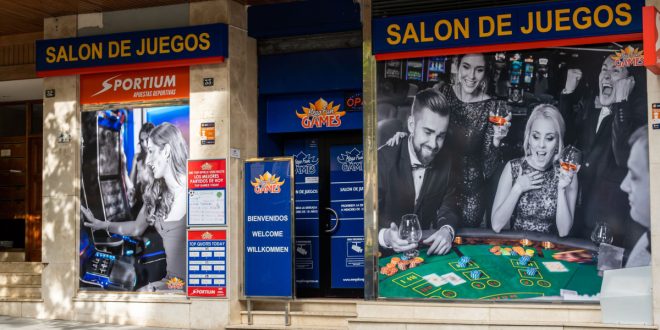The Royal Decree 958/2020 on Commercial Communications for Gambling Activities – more commonly referred to as the advertising ban – remains a cause of substantial disagreement in the Spanish betting and gaming industry, the debate at the Gaming in Spain conference suggested.
Mikel Arana, Director General of the Dirección General de Ordenación del Juego (DGOJ), used his keynote at the event in Madrid to outline the regulator’s plans to improve safer gambling provisions in the online sector, but also touched on the controversy about the country’s stringent advertising guidelines.
Both in his address and a subsequent fireside chat with Birgitte Sand, former Director of the Danish Gambling Authority, Arana asserted that DGOJ data demonstrated that Royal Decree 958 – which heavily restricts advertising by operators, although stopping just short of an outright ban – had not led to a significant downturn in online player numbers or GGR.
However, that interpretation of the figures was hotly disputed by a number of other conference speakers and audience members, with the prevailing view in the room that the tight controls on advertising had strangled growth and risked becoming counterproductive.

Jorge Hinojosa, Director General of the trade association JDigital, said: “The Royal Decree on Commercial Communication has slowed down the growth of the gambling industry in Spain. It has helped to make it less appealing to operators.”
He also pointed out that Spain has the second lowest problem gambling rate in Europe behind Denmark, and suggested that advertising is not just a promotional tool, but one that can help to protect players by steering them away from unlicensed operators.
“We, the industry, maintain that advertising, contrary to what some people may believe, is a key tool to channelising the citizen to legal gambling websites, with responsible, safe and legal engagement,” said Hinojosa.
The advertising dichotomy
Peter Marcus, Group Operations Director of Entain, approached the issue from a different perspective and asked Arana whether implementing such tight advertising restrictions actually made one of the DGOJ’s key safer gambling objectives more difficult to achieve.
“On the one side you are saying that you want to make this business much more recreational, because the intensive players and the high percentage of revenue that comes from those few customers is your real concern – which I completely understand,” said Marcus.
“On the other side, the only way to get a more recreational base of business and more people spending less money, which is what I think we all want, is to be able to market our product to those people.
“That’s a dichotomy that I think we’re always in because with the advertising bans around, we become more reliant on the high-intensity customers. We can’t get that mass market in that we used to get with all the advertising.”
Arana responded by emphasising that while there are restrictions in place, there is no outright ban on advertising for online operators in Spain, citing Facebook and Google as two channels for promotion.
He also queried whether the regulations had really impacted growth and if operators were right to assume that more advertising would create a mass market for online betting and gaming.
“The size of the market in Spain before and after the Royal Decree on Commercial Communication is nearly the same,” said Arana.
“I mean there’s not been such a decrease in new players. There weren’t so many new players getting into the market before the Royal Decree when it was all the time on television. So what we assume is that [the market] is growing at the rate that it should.”
He added: “When you say that if there were more players, there would be less intense players – our data doesn’t say that.”
Is regulation slowing development of sustainable industry?
If Arana was expecting his position on the advertising regulations to be supported by Silverback Advocacy’s Juan Espinosa, his predecessor as Director General of the DGOJ, he would have been disappointed.
Perhaps mindful of the difficult position that the regulator occupies, caught between the demands of government and the wishes of the industry, Espinosa chose his words carefully and stopped short of direct criticism.
However, during a panel titled ‘Looking Back at 10 Years of Regulated iGaming’, he questioned whether limiting operators’ ability to grow their customer base by tightening the scope for marketing had helped to create the imbalance that means a disproportionately high percentage of GGR comes from a small number of intensive players.
If the advertising restrictions are accompanied by measures to put greater controls on the activities of high rollers, Espinosa said, “you are really limiting the way that the industry is able to develop in a sustainable fashion”.
He predicted that smaller operators would exit the online market in the near future and leave just a handful of major players, unless “we change something else that allows for the customer base to be widened and the social perception of this activity to lean more towards the leisure and entertainment side, and less on the harmful side of things”.
Perhaps the most direct and scathing criticism of the advertising restrictions came from Santiago Asensi, the prominent gaming industry lawyer who is Managing Partner of Asensi Abogados.
“I believe that the Decree on advertising is absolutely too far, it is incorrect,” said Asensi, during the ‘Looking Back at 10 Years of Regulated iGaming’ panel.
“We need to think not only about those operators that were already in the market, but also those ones that just got the licence a few months before and then all of a sudden the rules of the game were totally changed.
“An online portal is not a land-based casino that everyone knows where it is located. We are talking about something that is on the internet and needs advertising or marketing to be promoted and to be known by the players. So I think that [the Royal Decree] is a disgrace for the industry.”









